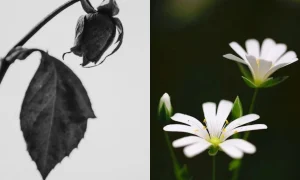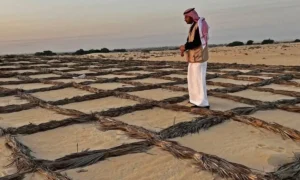COP16: Agreement to Recognize People of African Descent and Indigenous Peoples as Key Drivers in Nature Conservation

COP16 in Cali, Colombia, from October 21 to November 1, resulted in the adoption of a landmark biodiversity agreement involving people of African descent and Indigenous Peoples.
The 16th session of the Conference of the Parties to the United Nations Convention on Biological Diversity (COP16) adopted the first-ever global agreement recognizing people of African descent and Indigenous Peoples as key drivers in biodiversity restoration and conservation efforts.
The agreement comes after three decades of efforts. Debates and discussions among over 170 delegates worldwide also led to the decision to create a subsidiary body for them.
“This is an unprecedented occasion in the history of multilateral environmental agreements. “Indigenous peoples and local communities of the world – connected from our knowledge systems in the care of life and biodiversity – remember the long road we have traveled towards this agreement.”
Camila Paz Romero, spokesperson for Indigenous Peoples at the summit, told UN News.
196 countries adopted the Convention on Biological Diversity in 1992. Signatory countries are required to respect, preserve, and maintain the knowledge, innovations, and practices of Indigenous and local communities, as per the agreement, according to UN News.
Also read: COP16 Finalizes Framework for Ecologically or Biologically Significant Marine Areas (EBSAs)
The agreement means the world officially recognizes the significance of Indigenous and local communities’ lifestyles, culture, traditions, and values in biodiversity conservation, its sustainable use, and fair benefit-sharing from genetic resources.
“With this decision, the value of the traditional knowledge of indigenous peoples, Afro-descendants and local communities is recognized, and a 26-year-old historical debt in the Convention on Biological Diversity (CBD) is settled,”
Susana Muhamad, Colombia’s environment minister and COP16 president, said on social media platform X.
The decision formally acknowledged the contributions of people of African descent, who follow traditional lifestyles, in conserving nature.
“We are very excited. This is definitely a step forward in the recognition of the rights of Indigenous Peoples and local communities. It is also a recognition of our knowledge and how it contributes to biodiversity conservation”,
says Adamu Adija of the International Indigenous Forum on Biodiversity (IIFB).
The purpose of the agreement aligns with the goals of the Kunming-Montreal Global Biodiversity Framework. The subsidiary body gives them a permanent voice in global decision-making on biodiversity.
Indigenous peoples and local communities now have a permanent role in UN biodiversity decision-making. Before, they could only join talks if invited by governments. Now, they can participate in discussions and negotiations involving biodiversity without invitations.
This is the first time a COP document includes Afro-descendant peoples’ role in conservation. The subsidiary body gives them a permanent, dedicated seat at the table.
Also read: COP29: What You Need to Know About the UN Climate Summit 2024
It’s worth noting that, so far, no other UN environmental body or program has given Indigenous and local communities a dedicated, permanent space like this.
“This new subsidiary body is a benchmark for the rest of the world in which the parties recognise the continued need for our full and effective participation, knowledge, innovations, technologies and traditional practices to meet the objectives of the convention,”
says Camila Paz Romero.






